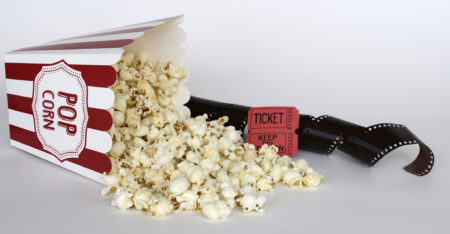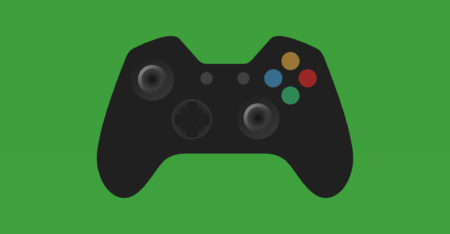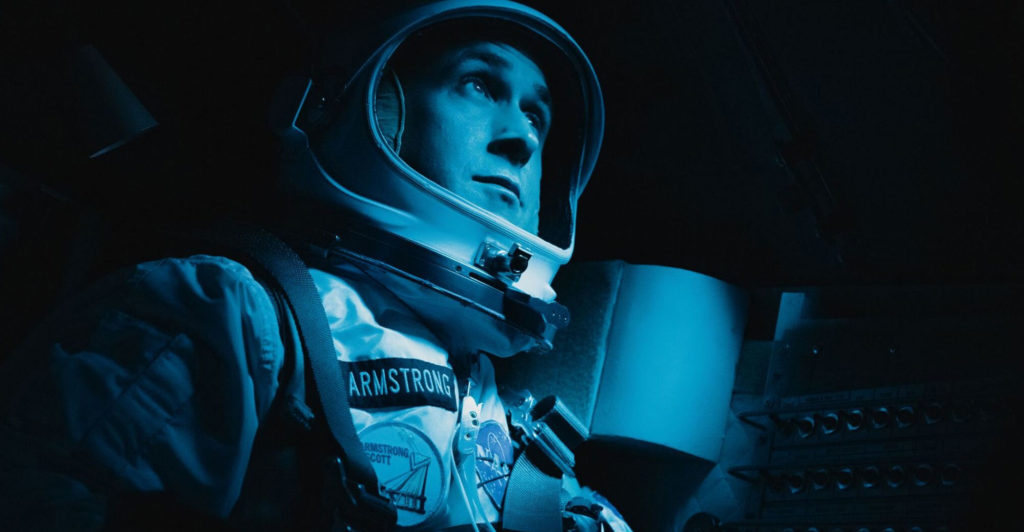Billion-dollar juggernauts like Captain America: Civil War and Batman versus Superman: Dawn of Justice ruled the box-office this year. But amid the noise and spectacle, there were also some good films tailored to audiences looking for old-fashioned storytelling and filmcraft rather than SFX-heavy superhero battles.
This list is based only on cinema releases in South Africa in 2016 — films not yet released (such as Manchester by the Sea and La La Land) and those that will probably never be released to local screens (such as Midnight Special) are excluded from consideration.
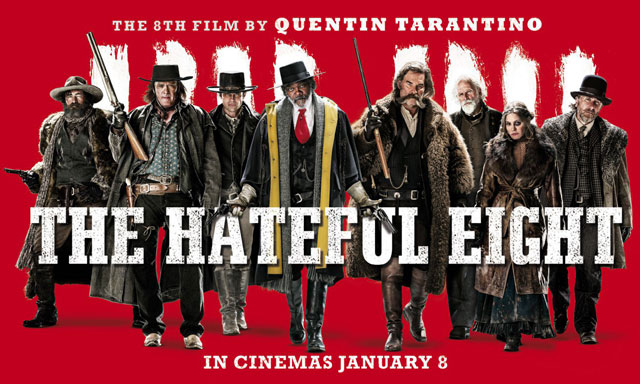
 The Hateful Eight
The Hateful Eight
Quentin Tarantino’s eight film is one of his weakest to date, but a poor Tarantino effort is still more interesting than most of Hollywood’s output during 2016. There is a sense in The Hateful Eight that Tarantino is trying too hard to shock and that he indulges himself by including scenes that should have been left in the cutting room floor, but there is still enough good stuff in this talky three-hour film to make it worth a watch.
Tarantino corrals an excellent cast to play eight of the nastiest sumbitches ever to crawl out of his imagination. Most memorable of them is Jennifer Jason Leigh as an appallingly crass and murderous villain who makes the rest of the horrible crew look almost humane. The original score composed by Ennio Morricone is great, as is the widescreen cinematography from Robert Richardson. The Hateful Eight burns slowly, but the shocking Grand Guignol payoff eventually rewards the patient viewer.
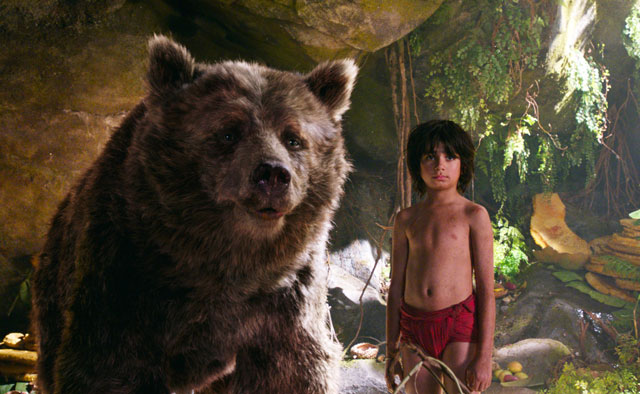
 The Jungle Book
The Jungle Book
Director Jon Favreau’s reimagining of The Jungle Book is Disney’s most successful live-action remake of one of its classic cartoon features. It sets new benchmarks for animal CGI and ratchets up the action, yet retains most of the charm and humour of the much-loved original. The casting — including Bill Murray as Baloo, Scarlett Johansson as Kaa and Idris Elba as Shere Khan — is spot on. It’s a slick and appealing update with enough technical wizardry to disguise the fact that it doesn’t really do anything new with the story.
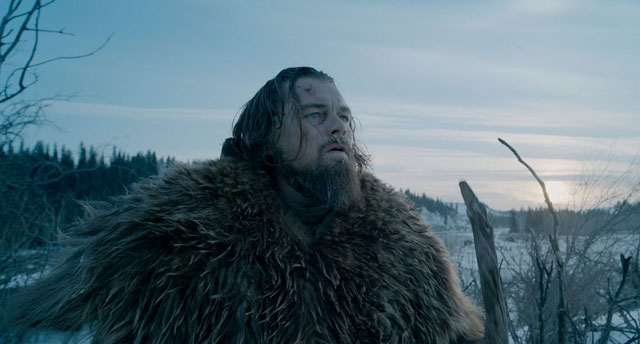
 The Revenant
The Revenant
Leonardo DiCaprio finally clinched his best actor Oscar for his uncompromising and physically punishing role in The Revenant, a savage tale of loss, survival and revenge. Director Alejandro González Iñárritu finds fierce beauty in the icy North American wilderness as he pits DiCaprio against the weather, wild beasts and human treachery. It’s an exhausting film to watch, more admirable than enjoyable.
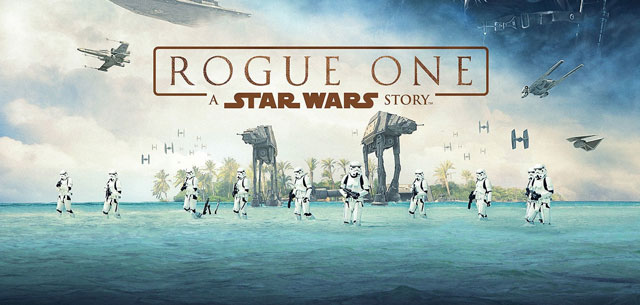
 Rogue One: A Star Wars Story
Rogue One: A Star Wars Story
Dare it be said that Rogue One — the minor side story in the new cycle of Star Wars films — is a fresher and more interesting take on the franchise than The Force Awakens, the start of the new trilogy? Taking its inspiration from wartime epics like The Guns of Navarone and Where Eagles Dare, Rogue One is a rousing, old-fashioned adventure film that takes the franchise to dark new places. Though steeped in Star Wars mythology, it also carves out a distinct feel and vision that sets it apart.
Felicity Jones heads the cast as a taciturn rebel leading a small band of soldiers behind enemy lines to steal the plans for the original Death Star; she’s accompanied by a motion-captured Alan Tudyk as a sardonic robot, Donnie Yen as a blind mystic, and Diego Luna as a seasoned rebel veteran. Director Gareth Edwards squeezes plenty of suspense out of the tale, though we know how it ends; the humour is grimmer and more low-key than most Star Wars films; and the battle sequences are some of the most exciting we’ve seen in a Star Wars film since The Empire Strikes Back.

 Hail, Caesar!
Hail, Caesar!
The Coen Brothers’ droll send-up of 1950s Hollywood pokes fun at Tinsel Town’s fondness for romanticising its history and at its misplaced nostalgia for the Golden Age of movies. All the Coens’ signature tics are here — goofy cameos from great character actors, a convoluted plot about a kidnapping gone wrong, oblique cinematic references, and a whip-smart script with flashes of dark humour.
Josh Brolin plays a gruff but good-natured babysitter to the stars, charged with keeping studio actors out of trouble and out of the tabloids. George Clooney takes the part of a dim-witted actor kidnapped by a communist collective. It’s by no means a Coen Brothers masterpiece, but the uproarious humour at the expense of a self-regarding movie industry lands more often than it misses. The period detail is immaculate and Roger Deakins’ cinematography confidently ranges from the garish colours of 1950s musicals to the deep shadows of the era’s noir films.
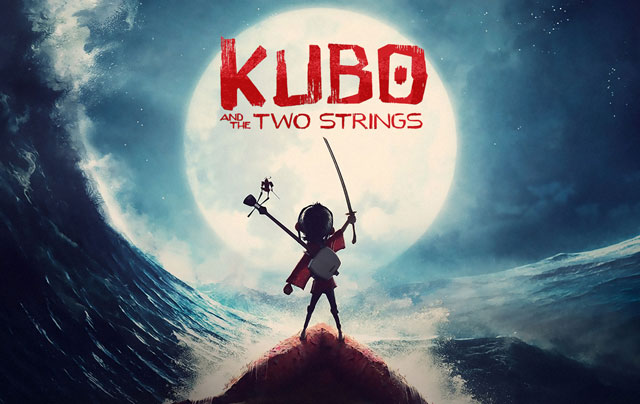
 Kubo & the Two Strings
Kubo & the Two Strings
Like Pixar at its best, Laika makes charming films that have nearly as much to offer adults as they do to children. Kubo & the Two Strings is the best film yet from the studio responsible for stop-motion animation classics Coraline and ParaNorman. The handcrafted animation is characteristically beautiful, while the Japanese folklore-inspired story is melancholy, magical and thematically rich. Plus, the voice acting from Rooney Mara, George Takei, Charlize Theron and Matthew McConaughey is delightful.
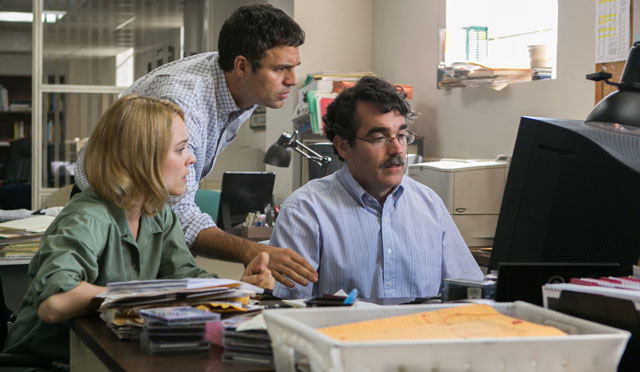
 Spotlight
Spotlight
Perhaps the finest movie about investigative journalism since All the President’s Men (1976), Spotlight is a timely reminder of the importance of a free and well-funded press. It’s a harrowing, matter-of-fact chronicle of how a Pulitzer Prize-winning team of reporters at The Boston Globe unearthed the systematic cover-up of paedophilia in Boston’s Catholic Church. Director Tom McCarthy is dry and forensic in his approach, but Spotlight’s hard-bitten journos and true story are so compelling that they don’t need to be varnished. Spotlight allows the facts to damn a corrupt establishment rather than grandstanding — and it’s all the more powerful for that choice.
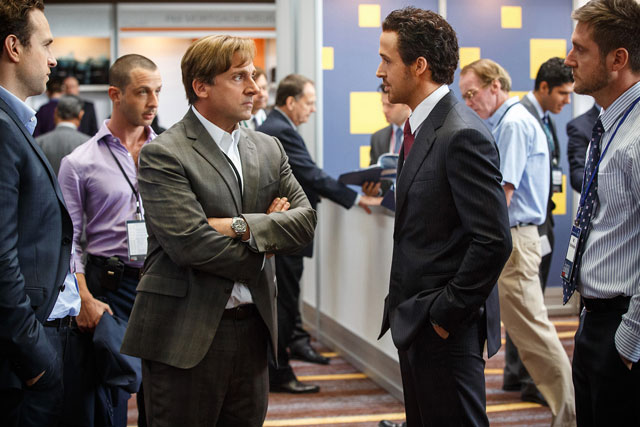
 The Big Short
The Big Short
Director Adam McKay — best known for his comedies with Will Ferrell — makes a pacey and engaging comedy about the US housing bubble and the financial crisis of 2007/2008. Its treatment of the subject is flippant and the way it turns the maverick traders who cashed in on the crisis into heroes is morally dubious, but The Big Short’s energy, polemic and humour is irresistible.
The cast — including Ryan Gosling, Brad Pitt, Steve Carell and Christian Bale — revels in the absurdities of the financial crisis. The fourth-wall busting gimmickry and the interludes where the likes of Selena Gomez and Margot Kidder explain complex financial instruments work better than they should. The Big Short isn’t quite as good as The Wolf of Wall Street or Margin Call, but it is funny and frightening at the same time.
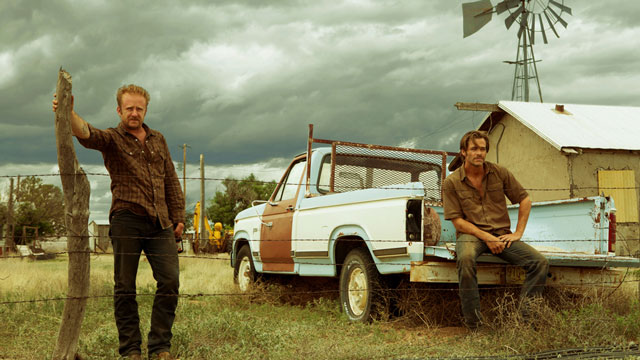
 Hell or High Water
Hell or High Water
Scottish director David Mackenzie’s neo-Western about two brothers on a bank robbery spree in America’s southwest is at once a muscular action movie, a slow burning drama about filial bonds and a poignant character study. Chris Pine as the devoted but desperate father trying to spare his kids a life of poverty and Ben Foster as his impulsive, ex-con brother flesh out well-worn archetypes with surprising layers of complexity.
But it is Jeff Bridges’ performance as the wise, laconic lawman on the trail of the two bank robbers that gives the film its soul. His work here, reminiscent of Tommy Lee Jones in No Country for Old Men, is the equal of his Oscar winning turn in Crazy Heart. The sharply observed script from Sicario writer Taylor Sheridan captures the despondency of those left behind by the financial crisis; Giles Nuttgens’ excellent cinematography evokes a mythic but unforgiving landscape.
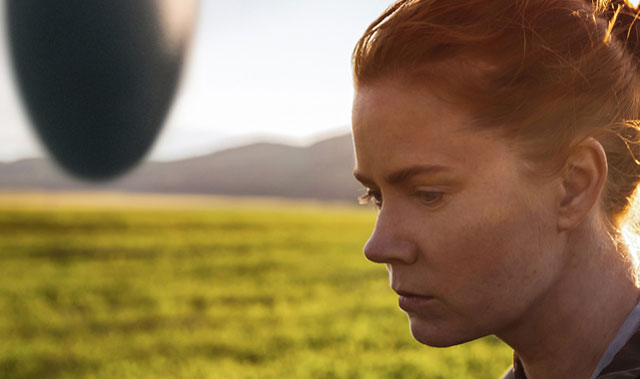
 Arrival
Arrival
Denis Villeneuve’s adaptation of Ted Chiang’s contemplative science-fiction novella, Story of Your Life, is a mesmerising and intelligent slice of science-fiction. Arrival’s central question is: how differently would we perceive the world if we learnt an alien language from a species that had little in common with us in terms of physiology, experience and environment? It’s a blend of Steven Spielberg’s child-like wonder and optimism and Stanley Kubrick’s cold intellectualism, taking on topics like linguistic relativism and predestination with apparent ease.
Everyone involved in the production is at the top of their game. Villeneuve’s precise, elegant craftsmanship makes him an ideal director to translate Chiang’s meticulous but spare prose into the language of cinema. Bradford Young, director of photography, lends the film an otherworldly beauty with his muted colours and exact framing; Jóhann Jóhannsson complements the visuals with an eerie score. Amy Adams gives a warm, subtle performance as the eminent linguist called in to decode an alien language.
The following films released in 2016 are also worth a mention:
Anomalisa: Charlie Kaufman’s stop-motion comedy-drama is as funny, profound and disquieting as the other films in his strange filmography.
Doctor Strange: The psychedelic visuals, sleek script and Benedict Cumberbatch’s star power make this one of the best superhero films of the year.
Don’t Breathe: In a year of tasty B-grade thrillers — 10 Cloverfield Lane, The Shallows and many others — this sinister twist on Home Alone was one of the most suspenseful and inventive.
Macbeth: Director Justin Kurzel’s broadsword-swinging adaptation of the Scottish play is a visceral, majestic take on Shakespeare with superb mud-and-blood battle sequences.
Star Trek Beyond: Justin Lin, best known for his work in the Fast and Furious films, delivers eyepopping action sequences in Star Trek Beyond. But the film is at its best when it channels the adventuring spirit of those old Trek episodes where William Shatner and Leonard Nimoy stalk around papier-mâché sets looking for a way off some alien planet. — (c) 2016 NewsCentral Media


